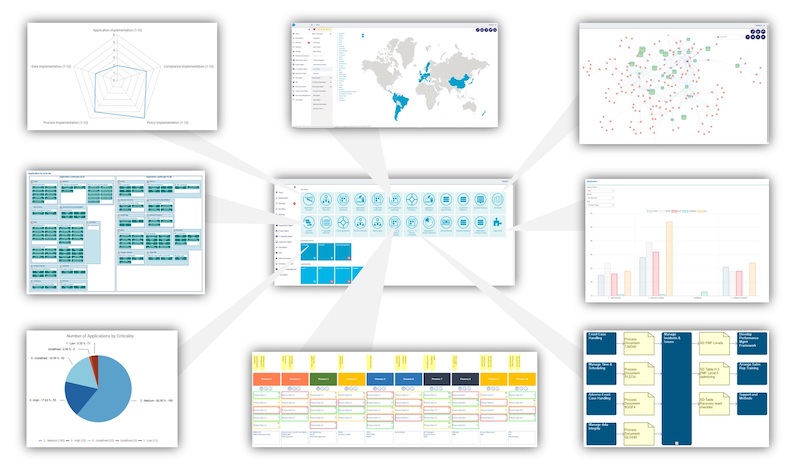Post-Pandemic Enterprise Architecture Priorities

Before the COVID-19 pandemic, many enterprise architects were focused on standardization. Identifying and putting into practice standard approaches to deploying systems, from the IT infrastructure and network protocols to the integration with other components, decreases the time to market for businesses and increases efficiency. In a world where agility and innovation are highly valued, speed is a critical factor for success.COVID-19 forced many businesses to radically change their business models – or re-evaluate their business processes – shifting the focus of enterprise architects. The top priority became mobility through a cloud-first strategy. By evaluating and deploying the right combination of cloud-based platforms and security tools, enterprise architects played a key role in keeping businesses up and running in a remote-work world.As the world moves forward, enterprise architecture (EA) is moving with it. The enterprise architect needs to develop an understanding of the organization’s business processes and business architecture. With this understanding, enterprise architects can play a key role in both customer and employee experiences, which are central to growing a business today.
Responding to a Crisis
According to Deloitte’s Enterprise Architecture’s Role in Recovering from a Crisis report, organizations typically respond to a crisis over three phases: respond, recover and thrive.
EA provides a way to drive change through every phase of recovery by providing an understanding of technology assets with business needs. Enterprise architects have been a critical component to helping businesses navigate the pandemic to reimagine the business, ensure business continuity, and identify the tools to survive and ultimately thrive in a post-COVID world.
We saw in the first phases of the pandemic how organizations had to navigate business continuity to survive. For example, a COVID EA response plan could have been used to ask: Are employees working from home? What roles do they have? What work do they do? And when are they available?
New Priorities
According to a survey by McKinsey and Co., the pandemic acted as an accelerant for digital transformation efforts, speeding up the adoption of digital technologies by several years.
As the world moves forward, so must enterprise architecture. Instead of focusing on standardization, the enterprise architect must play a key role in both customer and employee experiences, aspects that are central to growing a business.
Three priorities have emerged for enterprise architects as we move into this next phase:
Priority 1: Business Process and Business Architecture
Enterprise architects are accustomed to thinking about technology architecture and processes. With IT now being seen as an enabler of the business, enterprise architects need to think in terms of the customer journey and how people interact with the business across the value chain.
Priority 2: The Application Portfolio
Oversight of the application portfolio is not a new responsibility for many enterprise architects. Understanding the applications you have, the applications in use, and the applications that are ripe for retirement is an important part of running an efficient IT operation.
Priority 3: Risk Management – Security and Compliance
Businesses are paying close attention to risk from internal and external sources. With more connections between systems and companies, more third-party partnerships and more advanced attacks from cybercriminals and nation-states alike, security is top of mind from the boardroom on down.
The New Normal
As we move into recovery mode, organizations are assessing the processes, systems and technologies that will help them assimilate to the new normal and thrive post-pandemic. However, the role and priorities of enterprise architecture likely will continue to evolve to include responsibility for products, deployments and customers, as businesses continue to transform.
Whether documenting systems and technology, designing processes and critical value streams, or managing innovation and change, you need the right tools to turn your enterprise architecture artifacts into insights for better decisions.
erwin Evolve by Quest is a full-featured, configurable enterprise architecture and business process (BP) modeling and analysis software suite that tames complexity, manages change and increase operational efficiency. Its automated visualization, documentation and enterprise collaboration capabilities turn EA and BP artifacts into insights both IT and business users can access in a central location for making strategic decisions.
To learn more about the new priorities for enterprise architects post-pandemic, read our latest white paper: Enterprise Architecture: Setting Transformation-Focused Priorities.

